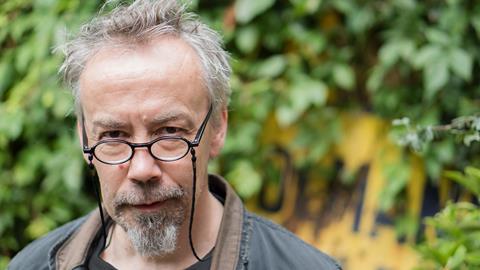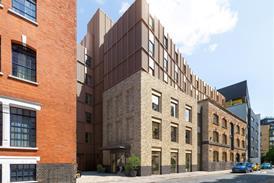Racism never disappeared – it was just hidden in people’s heads, even our own, writes David Rudlin

Some time ago I was running a workshop with a black community group in Manchester. The session had gone on longer than expected and the group leader Joe asked another member of the group to go and get some snacks and beers, giving him the keys to his car. He was gone a long time and eventually Joe made enquiries and discovered that he had been arrested. The only law he had broken, I was told, was that of “being a young black man driving a nice car”. I was shocked, but what really disturbed me was how normal this was to the group. They guessed immediately what had happened, knew who to call and treated it as a fact of life living in a major city like Manchester.
I started off feeling that I had no right to write about these issues in this column, being a white male. But I take to heart the point made by many Black Lives Matter activists that we all need to take responsibility for racism. If we are not seeking to be part of the solution then we are definitely part of the problem.
When my kids were younger they used to play a game when visiting my parents – how long would it be before grandad made a racist comment? He rarely managed a whole visit without at least one. He wasn’t ideologically racist, indeed the Methodist church he attended had quite a few black people in the congregation and he was fine with them, because he knew them. He was just a man in his late 80s who had never got used to the level of immigration that had taken place in the south Birmingham suburb where he lived.
My response, as someone who grew up in the 80s was to be horrified by his comments. By contrast my sons found the comments so alien to their experience that they just took the piss (which was a much more effective tactic than my outrage). As kids who went to a multi-racial school on the edge of Moss Side they saw racism as a relic of a former age, like a bad 70s sitcom. At the time I thought this was hopeful: we just needed to wait for the younger generation to come of age and racism would be a thing of the past.
Well in recent weeks the Black Lives Matter demonstrations have included huge numbers of mainly young people of all races and they no longer think it’s funny. People once more are saying that the younger generation is different, and that things will change. Hopefully they are right, but the same was said of my generation after the Brixton and Moss Side riots and the Rock Against Racism gigs that we attended in such numbers. We also felt that we were the majority. The focus of our anger at the time was the National Front as it is with the EDL today, but it was the silent majority that we should have been worrying about. The people who think as my dad did.
We once undertook a major consultation exercise in Oldham. The members of our team were taken aback by the number of racist comments that came from the white communities of the town. The following year we did a similar exercise in neighbouring Rochdale with a similar ethnic mix and didn’t register a single racist comment.
The reason for this difference was highlighted by the Candle Report into the Oldham Riots. In Oldham the Asian and white communities had become almost entirely separated; they no longer went to the same schools or mixed in any way. Both sides felt ignored and resentment had built to a point where people felt they had a licence to express their feelings. A huge amount of work has since been done in Oldham, particularly on multi-racial schooling and I would hope that the situation has been transformed.
The point of the story is, however, that the people of Rochdale may well have felt the same but the situation hadn’t got to the point where they felt able to say these things out loud. This was true of most people who knew that it was no longer acceptable to voice racist feelings. It allowed us to tell ourselves that racism no longer existed because it was no longer being expressed publicly.
This has changed with the rise of social media where these feelings are once more exposed and hopefully easier to deal with. Racism never disappeared: it was just hidden in people’s heads, even our own. The only way to address this in our work and daily lives is to be alive to this fact, to use it to question our actions and not to assume that racism is a thing of the past.
















3 Readers' comments